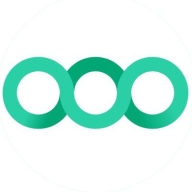

SonarQube Server and Semgrep are two leading products in the code analysis and security domain. SonarQube has the upper hand with its comprehensive feature sets that benefit teams seeking in-depth analysis, whereas Semgrep attracts security-focused teams with its ease of use and robust security rule sets.
Features: SonarQube Server is recognized for extensive language support, advanced code quality metrics, and a wide range of feature sets ideal for comprehensive analysis. It caters well to teams requiring detailed insights into code quality. Semgrep is noted for its specific focus on security, offering robust security rule sets that are straightforward to implement, making it particularly appealing to security teams. It excels in identifying vulnerabilities with user-friendly functionality.
Ease of Deployment and Customer Service: SonarQube Server necessitates a more complex setup, suited for larger teams with dedicated IT resources, offering structured support channels beneficial for ongoing maintenance. Semgrep, in contrast, provides a simpler deployment model, suitable for teams looking for quick implementation and agile project startups. Its customer service focuses on resolving deployment issues effectively and efficiently.
Pricing and ROI: SonarQube Server involves a higher initial setup cost linked to its advanced features and scalable architecture, leading to long-term ROI for teams seeking comprehensive solutions. Semgrep presents a more cost-effective setup with a quicker ROI aimed at teams focused on security scanning, looking to reduce initial expenses while maintaining effective security measures.


Semgrep is a tool for identifying vulnerabilities in code and ensuring code quality through static analysis. It is known for its efficiency, customizable rules, and seamless integration into CI/CD pipelines.
Semgrep aids developers in maintaining secure codebases by automating security checks and reducing manual code reviews. It is particularly valued for enforcing coding standards and discovering common security flaws early in the development process. Its ability to handle multiple languages and customizable rules, along with its open-source nature and active community support, make it a popular choice among developers. However, users have suggested that documentation could be more comprehensive, configuration more intuitive, and performance more optimized to better serve both new and experienced users.
What features does Semgrep offer?Semgrep is implemented across various industries for its effectiveness in maintaining secure codebases and automating security checks. In sectors like finance, technology, and healthcare, where code security is paramount, developers rely on Semgrep to enforce coding standards, reduce vulnerabilities, and comply with regulatory requirements. Its ability to handle diverse programming languages makes it versatile and suitable for different types of projects, from small startups to large enterprises.
SonarQube Server enhances code quality and security via static code analysis. It detects vulnerabilities, improves standards, and reduces technical debt, integrating into CI/CD pipelines.
SonarQube Server is a comprehensive tool for enhancing code quality and security. It offers static code analysis to identify vulnerabilities, improve coding standards, and reduce technical debt. By integrating into CI/CD pipelines, it provides automated checks for adherence to best practices. Organizations use it for code inspection, security testing, and compliance, ensuring development environments with better maintainability and fewer issues.
What are the key features of SonarQube Server?Many industries implement SonarQube Server to uphold coding standards, maintain security protocols, and streamline their software development lifecycle. In sectors like finance and healthcare, adhering to regulations and ensuring reliable software is critical, making SonarQube Server invaluable. It is often integrated into CI/CD pipelines, ensuring that code changes meet set standards before deployment. This approach enhances productivity and maintains compliance with industry-specific requirements.
We monitor all Static Application Security Testing (SAST) reviews to prevent fraudulent reviews and keep review quality high. We do not post reviews by company employees or direct competitors. We validate each review for authenticity via cross-reference with LinkedIn, and personal follow-up with the reviewer when necessary.